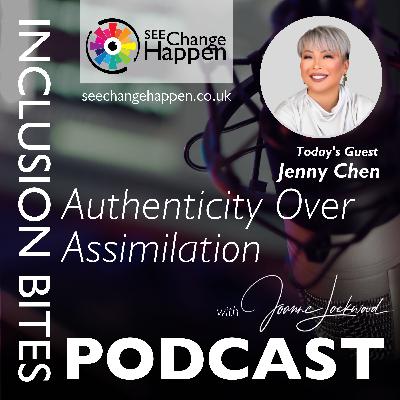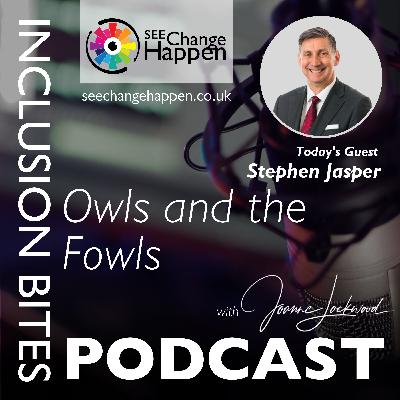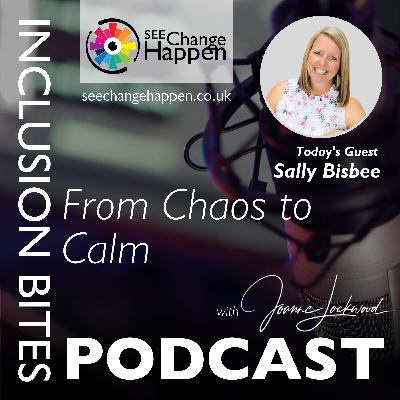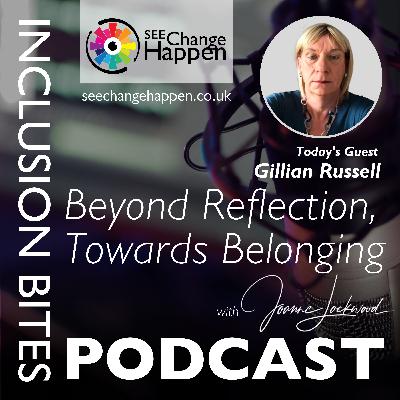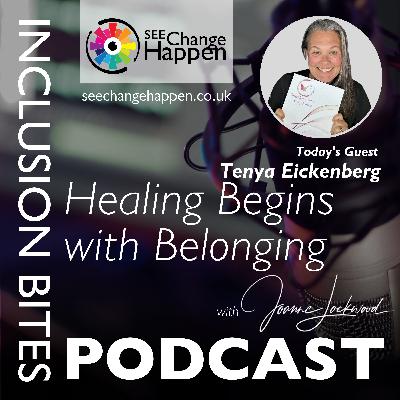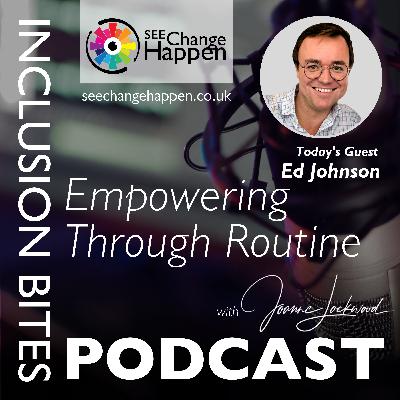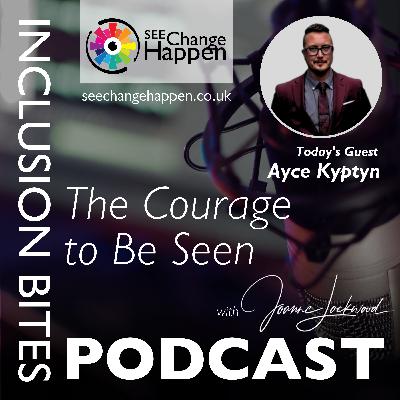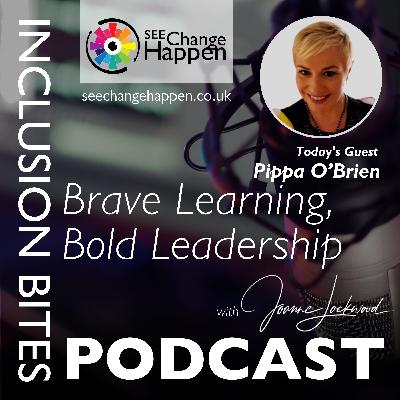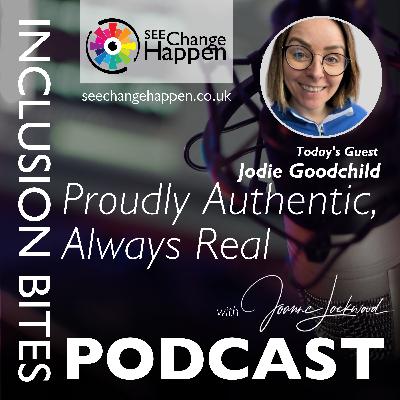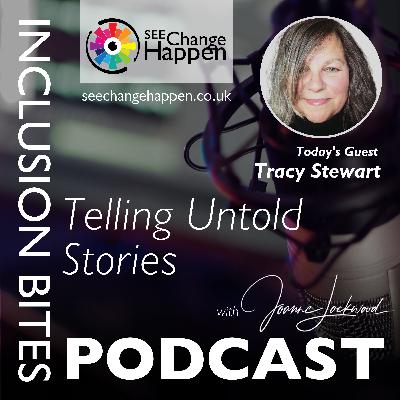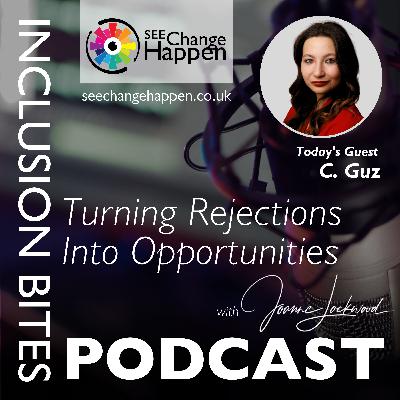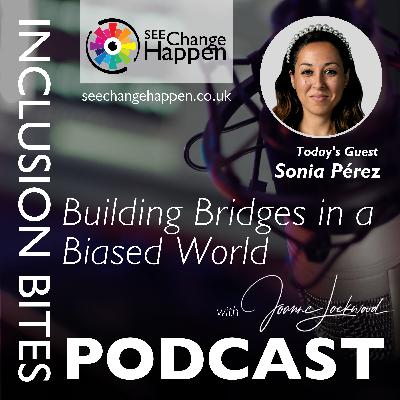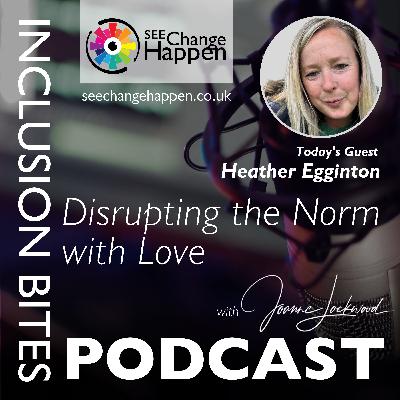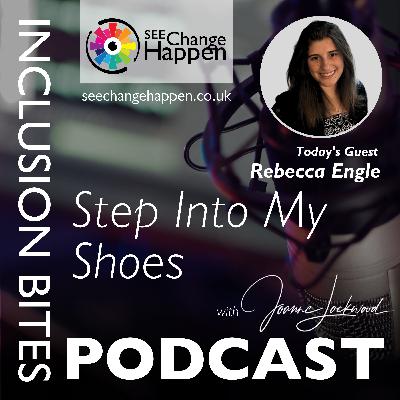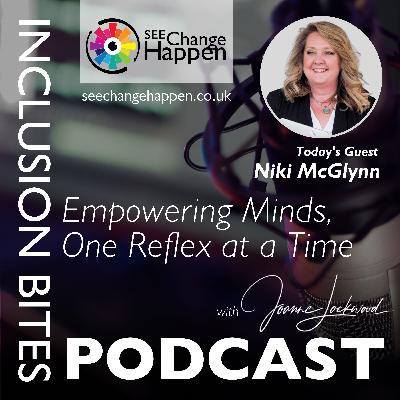Belonging Across Borders
Description

Navigating Dual Identities: Building Belonging Across Cultural Borders
Mina Sharif explores the complexities of dual identity, the challenges and enrichment of belonging across cultures, and the profound impact of storytelling and compassion in fostering genuine connection and understanding.
In this compelling episode of The Inclusion Bites Podcast, Joanne Lockwood is joined by Mina Sharif for a nuanced exploration of belonging across borders. Together, they unravel the complex realities faced by those living between cultures, particularly refugees and the forcibly displaced. Drawing from Mina’s experiences growing up in Canada after fleeing Afghanistan, returning as an adult, and later re-settling, the conversation reveals how identity is continually shaped by displacement, heritage, and the dualities of life in exile. From discussions of trauma and resilience to the pitfalls of saviourism and media bias, the episode illuminates the deep sense of loss and adaptation experienced by newcomers, as well as the critical need for authentic inclusion and compassion within host communities.
Mina is a writer, media producer, and passionate advocate for cross-cultural understanding through storytelling and empowerment. Raised in Toronto after being exiled from Afghanistan, she returned in 2005 and spent over a decade building educational media projects, including children’s programming such as Afghanistan’s Sesame Street. Now back in Canada, Mina channels her insights into workshops and narrative work, amplifying marginalised voices and highlighting the importance of recognising trauma, healing, and the unique complexities faced by those caught between worlds. Her approach foregrounds empathy, humanises displaced people beyond media stereotypes, and urges hosts and newcomers alike to connect authentically, resist broad categorisations, and embrace the strength found in multifaceted identities.
Mina and Joanne discuss the crucial roles of dignity, curiosity and individual storytelling in nurturing belonging. They challenge assumptions, explore the intersections of Afghan and Canadian identity, and unpack how societies can better accommodate, support, and learn from those recovering from loss and upheaval. The conversation leaves listeners with a powerful reminder: inclusion thrives when we ask thoughtful questions, approach each other without preconceptions, and create space for people to tell their personal stories.
A key takeaway from this episode is the value of seeing displaced individuals as whole people—carrying loss, capability, and culture—with agency and humanity, rather than simply through the lens of victimhood or charity. By listening deeply, fostering empathy, and prioritising genuine human connection, we can collaboratively build spaces where everyone has a chance not only to belong, but to thrive.
Shownotes:
AI Extracts and Interpretations
The Inclusion Bites Podcast #171 Belonging Across Borders
— app.castmagic.io
Other Links
SEE Change Happen: The Inclusive Culture Experts
Inclusion Bites Podcast on YouTube
Clips and Timestamps
Media Bias and Perception of Afghanistan: “But that’s the media Bias I have. That’s the pictures I see all the time.”
— Mina Sharif [00:08:35 → 00:08:39 ]
The Immigrant Experience: “To suddenly find yourself transported effectively the other side of the world, where your, Your. Your language is not understood, you don’t understand the other language. Maybe, maybe you’ve got some understanding of English or French, whichever part of Canada you’re in, but it’s not inherently part of your first language. Also, you’ve probably left behind a career, a profession. You could be a doctor, a lawyer, a plumber. You could have a business that you’ve left behind. And suddenly you’ve come into a country with effectively nothing.”
— Mina Sharif [00:25:13 → 00:25:46 ]
Identity and Belonging: “Whilst I’ve always felt that I was never a native, I’ve always been a native, if that makes sense. I’ve always had this identity of being born elsewhere.”
— Mina Sharif [00:31:12 → 00:31:21 ]
The Pitfalls of ‘Nice’ Intentions in Charity Work: But people are often scared of getting things wrong that they know they don’t know and they’re worried about their conversation and putting their foot in it. So they say what they think is a nice thing. But the nice thing is actually more patronising by trying to be helpful.
— Mina Sharif [00:39:54 → 00:40:08 ]
Viral Topic: Challenging Assumptions about Intelligence
“You’re talking about people here who are very capable, very intelligent, professional, academically gifted people who are.”
— Mina Sharif [00:42:12 → 00:42:19 ]
Viral Topic: Hidden Skills of the Displaced: “There were doctors, there were nurses, they were very good roles. And now they’re doing cleaning jobs. And now they’re doing this because people only see that side of them.”
— Mina Sharif [00:42:44 → 00:42:53 ]
The Pressure of Representation: “Whatever comes out of my mouth, I’ve got to try and find this middle ground of appeasement for as many people as possible. Yet, speak my truth. It’s a real burden.”
— Mina Sharif [00:47:17 → 00:47:26 ]
Viral Topic: Navigating Multiple Identities in a World of Labels: “Being Canadian and being Afghani are not conflicting. They’re just different parts of your life, different layers of your life, different different experiences, connections you’ve made.”
— Mina Sharif [00:49:16 → 00:49:25 ]
Human Bias and Tribalism: “Because we’re always us and they are always them. And no matter which side of the fence you’re on, you always have an us and a them.”
— Mina Sharif [00:53:19 → 00:53:26 ]
Letting Go of the Zero Sum Mindset: “We keep holding onto that prisoner of belief, don’t we? We’re going to try and let go of that and say, actually it doesn’t matter, I’ve got enough, I’ve got sufficient. This person needs more help.”
— Mina Sharif [00:55:58 → 00:56:07 ]
Definition of Terms Used
What is the Afghan Diaspora?
- Definition: The Afghan diaspora refers to individuals and communities of Afghan origin who live outside Afghanistan, often as a result of conflict, instability, or forced migration.
- Relevance: The episode discusses the experience of displacement, adaptation, and dual-identities many Afghans face after resettling in countries like Canada and the UK, shaping their sense of belonging and cultural retention.
- Examples: Afghan families who fled the country during conflict and now live in Canada, maintaining cultural traditions while adapting to their new environment.
- Related Terms: Exile, Refugee, Migration, Transnationalism, Multiculturalism
- Common Misconceptions: Some may think the diaspora represents a homogenous community or that all Afghans abroad wish to fully assimilate; in reality, experiences and degrees of cultural retention vary significantly.
What is Mosaic Multiculturalism?
- Definition: Mosaic multiculturalism is a policy and social philosophy that encourages the retention of distinct cultural identities within a society, with each group forming a unique piece of the broader national identity, as opposed to blending into a “melting pot”.
- Relevance: Canada describes itself as a mosaic rather than a melting pot, supporting policies and attitudes aimed at preserving minority cultures rather than promoting forced assimilation, as discussed in the episode.
- Examples: Public celebrations of diverse cultural holidays, or the Prime Minister recognising non-Christian festivals; Afghan newcomers establishing community centres and maintaining cultural practices in Toronto.
- Related Terms: Melting Pot, Integration, Pluralism, Assimilation
- Common Misconceptions: Some assume mosaic multiculturalism leads to segregation or lack of unity, but it is intended to foster a sense of belonging and mutual respect among diverse groups within a share

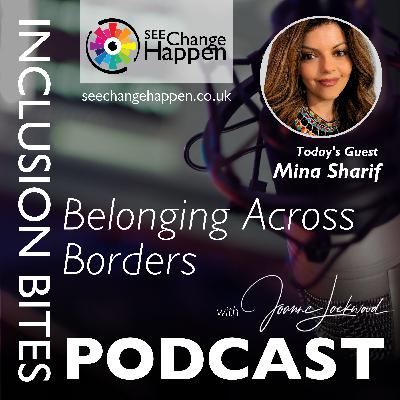
 Published: 14.08.2025
Published: 14.08.2025 Duration:
Duration: 